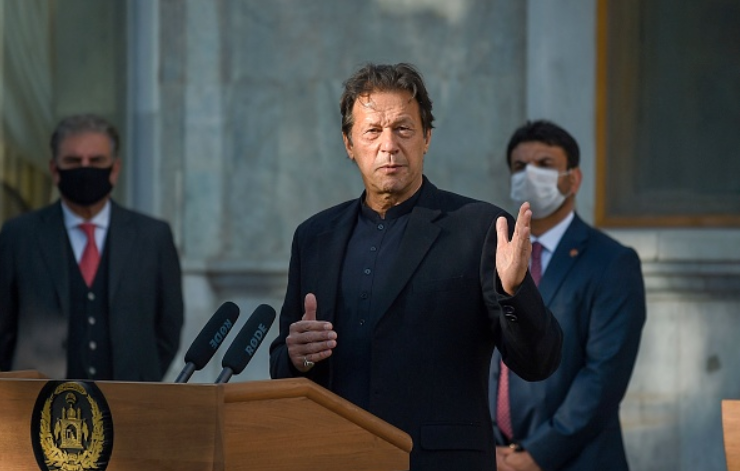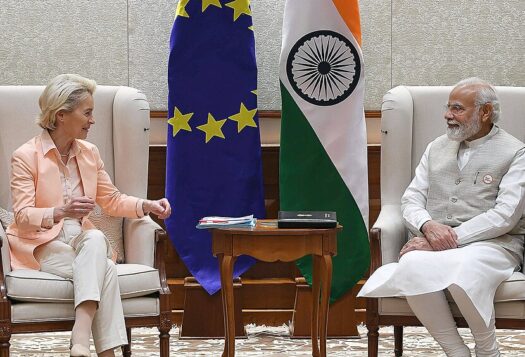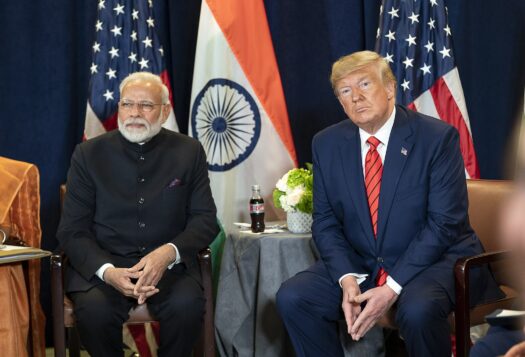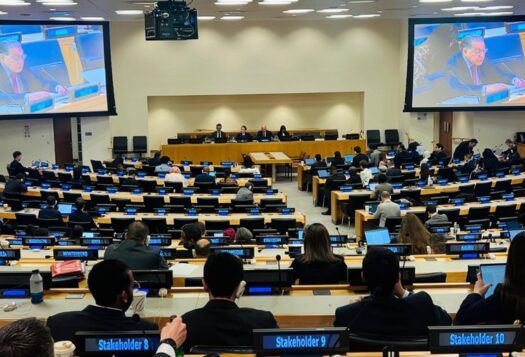
In his book entitled “No Exit from Pakistan”, Daniel Markey writes that, “both sides [the United States and Pakistan] failed repeatedly to build a relationship to serve beyond the immediate needs of the day.” This phenomenon is likely to be observed in the wake of the unconditional withdrawal of U.S. troops from Afghanistan, set for September 11, 2021. Though the United States has assured that it will not only withdraw responsibly but also remain committed to supporting the peace process in Afghanistan, President Joe Biden’s decision to expedite the exit could further encourage warring factions to use force in pursuit of controlling Kabul. By virtue of being Afghanistan’s neighbor and playing an all-important role in facilitating dialogue between the Afghan Taliban and the United States, Pakistan and, by extension, Pakistan-United States ties, will be affected by both the mannerism of United States’ exit and how disparate groups jockey for gaining control of Afghanistan.
Stressing the need for troop withdrawal to align with progress in the peace process, Islamabad, in response to Biden’s announcement, expressed hope that Washington will continue pushing Afghan leaders to seize this “historic opportunity”, to arrive at a political settlement in Afghanistan. Though it would be premature to definitively assess the implications of the ongoing withdrawal, it is reasonable to argue that it has increased the prospect of a civil war that could eventually lead to a decisive victory for the Taliban. If such a scenario were to look imminent, Islamabad-Washington relations could be damaged for two reasons. First, friction is more likely given that Washington’s expectations of Islamabad to influence the Taliban are unlikely to match the latter’s capabilities in that regard – particularly if the Taliban take on a more prominent role in Afghanistan. Two, the first 100 days of the Biden administration suggest that Washington will view Islamabad through an Afghanistan lens, which may mar prospects of improving the relationship in other aspects.
Do-More Versus Done Enough
The first issue stems from Pakistan’s changing capacity to influence the Taliban, which is likely to lead to frustrations in the United States. In their enunciations on the future of their country’s engagement with Afghanistan, President Biden and Amb. Zalmay Khalilzad, have alluded that Pakistan has the required leverage over the Taliban to be able to effect a change in the group’s behavior so as to reduce violence and reach a political settlement. This points to how Washington, overestimating Pakistan’s ability to shape a favorable outcome in Afghanistan, is transferring substantial responsibility for peace in that country.
Pakistan and, by extension, Pakistan-United States ties, will be affected by both the mannerism of United States’ exit and how disparate groups jockey for gaining control of Afghanistan.
Both Khalizad and Biden have emphasized that Pakistan can help Afghanistan, by pressuring the Taliban to commit to negotiating through dialogue. Concomitantly, Washington has vowed to hold the Taliban accountable for their promises of preventing al Qaeda and other organizations from using Afghan soil for terrorism. With the United States aiming to keep an eye on the Taliban and convinced that Pakistan can still pressure the group, Pakistan could expect a return of the do-more demand should the Taliban gain control of Afghanistan through force. Along with Washington, Kabul, too, is likely to look to Pakistan to moderate the Taliban’s behavior. In a recent interview, Afghan President Ashraf Ghani argued that peace or hostility in Afghanistan will largely depend on what Pakistan does.
However, despite historic ties and effectively bringing the Taliban to negotiating table in 2020, Pakistan’s influence and leverage with the group is changing. Even in the 1990s, Pakistan’s say was not always enough to significantly alter the group’s behavior. Over the years, the Taliban have diversified their support base, by cozying up to countries like Iran. While Pakistan pushed the Taliban to enter into negotiations in February 2020, it has been unable to deal with their intransigence and increasing operational independence. Additionally, the Taliban’s diplomatic and battlefield dominance makes them less amenable to deference to external forces, including Pakistan. Pakistan, for its part, has communicated that it is a facilitator in the peace process, and that the ultimate onus for bringing peace to Afghanistan lies on the Afghan leadership.
It could be argued that given its documented ties with the Taliban and strained ones with the Afghan government and other groups, Pakistan’s bid to convince all parties will be harmed. However, Pakistan has heightened engagement with multiple parties in Afghanistan – as highlighted by recent meetings between Foreign Minister Qureshi and Ashraf Ghani and General Bajwa’s visit to Kabul. While Pakistan maintains ties with the Taliban, it would not like to appear partisan and push for their takeover of Afghanistan. Doing otherwise would hurt Pakistan’s efforts to brand itself as a genuine promoter of peace in Afghanistan and gain from economic benefits of greater stability in the region. As highlighted by Islamabad’s release of a dossier reporting New Delhi’s support of anti-Pakistan outfits in Afghanistan, Pakistan also has remaining security concerns in Afghanistan and wants any future dispensation in Afghanistan to ensure that Afghan territory is not used against it. Violence in Afghanistan will provide a more fertile ground for anti-Pakistan militants to mount attacks on Pakistan. Thus, Pakistan’s security and economic interests will drive its constant efforts to push Afghan parties, including the Taliban, to fully capitalize on the opportunity to shape their own future.
As the U.S. withdraws from the region, the Taliban are unlikely to feel the need to negotiate with other contenders in Afghanistan, especially given that they are militarily stronger. Thus, expecting Pakistan to rein in the Taliban after giving them significant space in Afghanistan, is unreasonable. In her recent piece, Rabia Akhtar argues: “The U.S. has much to be accountable for and scapegoating Pakistan isn’t going to cut it.” However, Pakistan may be held responsible should Afghanistan slide back into civil war or greater instability, a factor likely to strain U.S.-Pakistan ties.

An Unimpressive Start
U.S.-Pakistan ties could deteriorate – or remain limited – for reasons other than the threat of a Taliban takeover of Afghanistan. The first three months of the Biden Administration do not augur well for Washington-Islamabad relations. So far, President Biden and Prime Minister Khan have not established contact, despite the latter’s congratulatory tweet through which he expressed the desire to work with the new administration on a host of issues. Here, it is important to note that, despite a bumpy start to relations, a thaw in them during the Trump Administration was facilitated by a healthy working relationship between Prime Minister Khan and former President Donald Trump. In order to avoid the pitfalls of miscommunication, it is imperative that both leaders have clear lines of communication.
Thus far, communication between the Biden Administration and Pakistani officials has remained largely limited to discussing the situation in Afghanistan, pointing to the limited gamut of their relations. The propensity of episodic incidents to rupture bilateral ties, was brought to the fore in the first contact between Pakistani Foreign Minister Shah Mehmood Qureshi and Secretary of State Antony Blinken. Coming on the heels of the acquittal of the men accused of the murder of U.S. journalist Daniel Pearl by the Sindh High Court, the readouts of the phone call from Pakistan and the United States were starkly different, underscoring the volatility of their relations. In their most recent phone call several days ago, Qureshi and Blinken discussed Afghanistan but also expressed the desire to broaden the scope of these relations, and focus on trade and commercial relations. However, absent high-level interactions, both countries could wade into a 2011-like situation, which was characterized by standalone events causing irreparable damage to ties. Back then, irritants were often circumvented as stepping away from the relationship would be a tactical folly with strategic ramifications. With that Afghanistan-specific necessity no longer a factor, these aberrations could be bad news for Washington-Islamabad relations.
Absent high-level interactions, both countries could wade into a 2011-like situation, which was characterized by standalone events causing irreparable damage to ties.
Further, despite Pakistan expressing a desire to change the nature of ties with the United States from one marked by age-old clichés and recrimination to one where geoeconomics should take center stage, there is little reciprocity from the United States, which has been frustrated by bilateral ties between the two countries. Despite receiving plaudits for confronting the scourge of climate change, Prime Minister Khan was not extended an invitation to the Leaders’ Summit on Climate. This snub was surprising because Pakistan is the fifth most vulnerable country to climate change. Although Khan’s advisor on climate change was eventually invited to the summit, the late invitation could still be viewed as a snub. Whether ignoring Pakistan was an oversight, or a deliberate policy decision, the issue is emblematic of how far down the priority ladder Pakistan is for the United States. These misgivings will become a hurdle when more thorny issues, including Pakistan’s bonhomie with China, and that between the United States and India, will challenge officials in both capitals.
As the United States leaves Afghanistan, Pakistan is likely to take on a greater role, however, Islamabad will not be able to shoulder the burden alone. This is something that is likely to strain Pakistan-United States relations, and so will the Biden administration’s piecemeal efforts to engage with the Pakistani leadership. Taken together, all this means that the road ahead for both countries is a rocky one. For Pakistan’s part, it will need to remain engaged with all Afghan groups and ensure that it not only maintains but also increases its official interactions with the Biden Administration in a bid to avoid a breakdown in communication over the situation in Afghanistan. Absent official coordination, traversing the road ahead would be all the more daunting.
***
Image 1: WAKIL KOHSAR/AFP via Getty Images
Image 2: Spencer Platt via Getty Images


